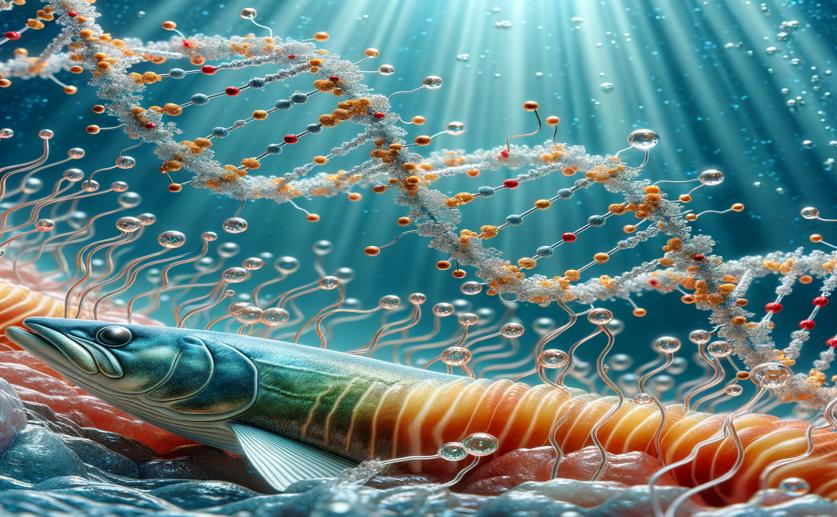
Genomic Study of Piscicolin CM22 from Bacteria Found in Salmon
Jenn Hoskins
4th July, 2024

Image Source: Natural Science News, 2024
Key Findings
- Researchers from the University of Granada isolated a new strain of lactic acid bacteria, Carnobacterium maltaromaticum CM22, from a salmon gut sample
- This strain produces a bacteriocin called piscicolin CM22, which is effective against several Gram-positive bacteria, including Listeria monocytogenes and Clostridium perfringens
- Piscicolin CM22 shows potential for use in the agri-food industry to reduce reliance on chemical preservatives and combat antibiotic-resistant bacteria
References
Main Study
1) Genomic Characterization of Piscicolin CM22 Produced by Carnobacterium maltaromaticum CM22 Strain Isolated from Salmon (Salmo salar)
Published 3rd July, 2024
https://doi.org/10.1007/s12602-024-10316-1
Related Studies
2) Bacteriocins in the Era of Antibiotic Resistance: Rising to the Challenge.
3) Bacteriocins: Properties and potential use as antimicrobials.
4) Antibacterial Activity of Pediocin and Pediocin-Producing Bacteria Against Listeria monocytogenes in Meat Products.
5) The gastrointestinal microbiome and its association with the control of pathogens in broiler chicken production: A review.



 6th June, 2024 | Greg Howard
6th June, 2024 | Greg Howard